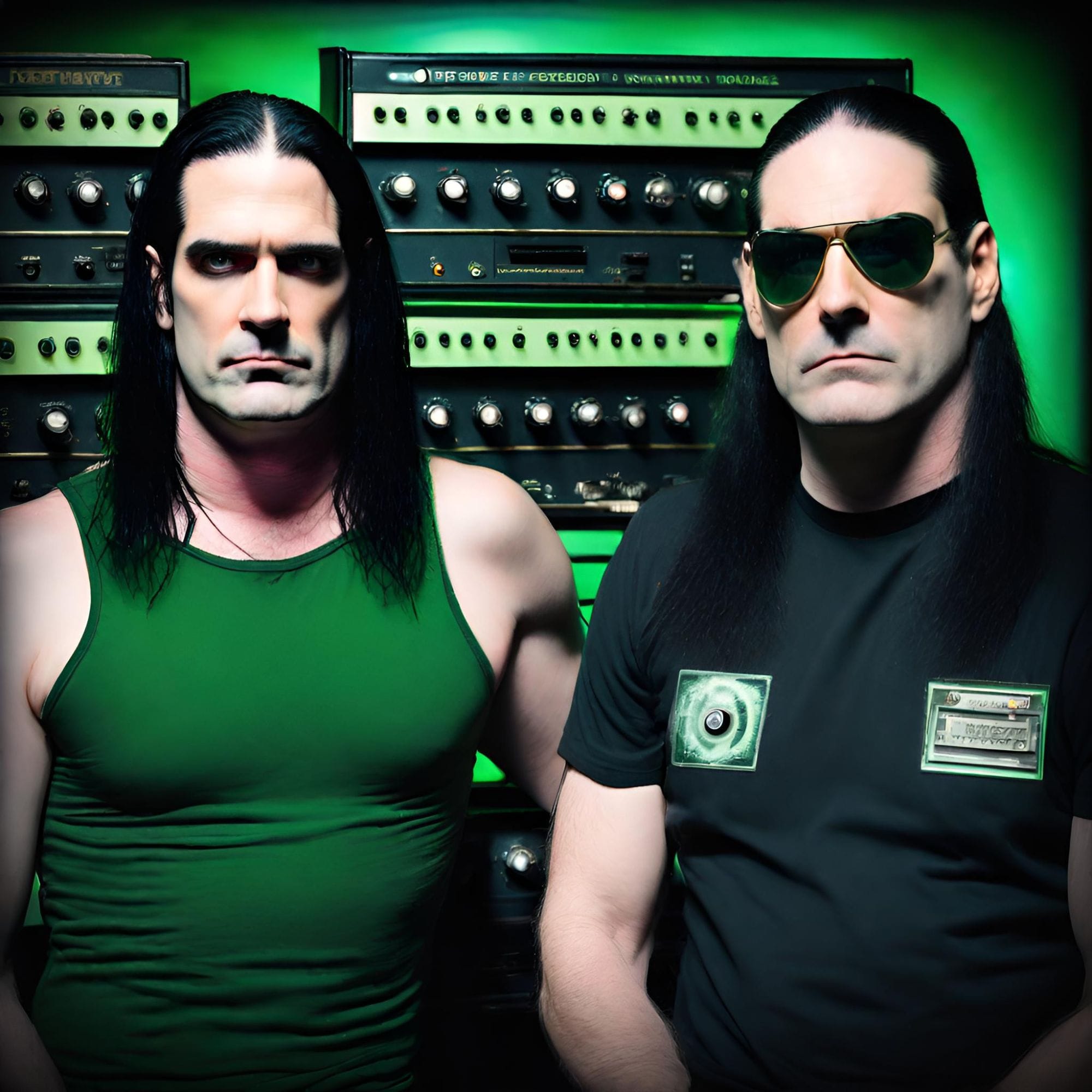








Introduction
The Daily Show has cemented its place as one of the most influential and beloved satirical news programs in television history. With its unique blend of comedy and political commentary, the show has captivated audiences for decades. But at the center of it all is a man who has become synonymous with The Daily Show itself - Jon Stewart.
In this article, we delve deep into the life and career of Jon Stewart, exploring the man behind the iconic anchor desk. While viewers may feel like they know him through his on-air persona, there is much more to Jon Stewart than meets the eye. From his early days in the entertainment industry to his philanthropic efforts and activism, we aim to uncover who the real Jon Stewart is, the man inside the man.
Background of the Daily Show
History and significance of the Daily Show
The Daily Show has become an iconic staple of American television, known for its unique blend of news satire, political commentary, and biting humor. It first premiered on July 22, 1996, as a 30-minute late-night news parody show on Comedy Central. Initially hosted by Craig Kilborn, the show had a more lighthearted and entertainment-focused approach.
However, it was under the stewardship of Jon Stewart that The Daily Show underwent a remarkable transformation. Stewart took over as host on January 11, 1999, and brought a newfound depth and relevance to the program. He took on the role of a satirical news anchor, using comedy as a means to critique and analyze current events.
Previous hosts and their impact
Before Jon Stewart's tenure, The Daily Show had two other hosts who left their mark on the show's development. Craig Kilborn, the original host, offered a more traditional late-night talk show format, featuring celebrity interviews and light-hearted skits. He laid the foundation for the show's success but did not delve deeply into political commentary or satire.
When Kilborn left, Jon Stewart stepped in and reshaped The Daily Show into the influential program we know today. Stewart's fresh approach and his ability to blend humor with incisive political analysis resonated with audiences. He brought a keen intellect and a sharp wit to the show, making it a go-to source for young viewers seeking a critical perspective on the news.
Jon Stewart's tenure and influence
During his 16-year tenure as host, Jon Stewart made The Daily Show a cultural touchstone and a must-watch for both political junkies and comedy enthusiasts. He fearlessly tackled pressing issues of the day, exposing the absurdities and hypocrisies of politicians and the media alike.
Stewart's influence extended far beyond the realm of television. He became a trusted voice, not just for his comedic genius but also for his ability to distill complex issues into accessible and engaging segments. His biting satire and clever commentary resonated with a generation, challenging conventional wisdom and pushing for a more informed and critical citizenry.
Under Stewart's guidance, The Daily Show became a launching pad for many talented comedians and political commentators who went on to make their mark in the industry. The show's alumni include Stephen Colbert, Samantha Bee, John Oliver, and many others, who have continued to bring their unique perspectives and comedic talents to the forefront of both television and online platforms.
The On-Air Persona
Analyzing Jon Stewart's comedic style
One cannot discuss the real Jon Stewart without delving into his unique comedic style that has captivated audiences for years. With razor-sharp wit, impeccable timing, and a knack for delivering biting punchlines, Stewart has refined the art of political satire. His ability to take complex issues and distill them into digestible, hilarious segments is nothing short of remarkable.
Stewart's comedic genius lies in his ability to find the absurdity in the everyday workings of politics and media. He fearlessly exposes hypocrisy, challenges conventional wisdom, and holds those in power accountable through his incisive and often hilarious commentary. His quick wit and clever wordplay have become trademarks of The Daily Show, making it a must-watch for anyone seeking a fresh perspective on current events.
Use of satire and political commentary
Stewart's on-air persona is synonymous with his use of satire and political commentary. Through his sharp observations and comedic sketches, he has become a master at highlighting the absurdity of the political landscape. Stewart's satirical approach allows him to tackle serious issues with a unique blend of humor and insight, making difficult subjects more accessible to a wide range of viewers.
His skillful use of satire has not only entertained audiences but also sparked important conversations about the state of our society. Stewart's ability to cut through the noise and expose the underlying truths has earned him a reputation as a trusted voice in political commentary. He has repeatedly demonstrated his commitment to holding those in power accountable and challenging the status quo through his thought-provoking segments.
Interviewing skills and engaging guests
Beyond his comedic prowess, Stewart's interviewing skills have played a pivotal role in shaping his on-air persona. He possesses a rare ability to engage with guests from all walks of life, regardless of their political affiliations. Stewart's interviews are characterized by a genuine curiosity and a desire to understand his guests' perspectives, even if they differ from his own.
His approach to interviewing is marked by empathy, respect, and a relentless pursuit of the truth. Stewart's unique blend of humor and sincerity allows him to create an environment where guests feel comfortable opening up and engaging in meaningful discussions. Whether it's a politician, a celebrity, or an expert in their field, Stewart has an uncanny ability to extract thought-provoking insights from his guests, often leading to surprising and enlightening conversations.
Off-Air Life and Activism
Personal life and early career
In order to understand the real Jon Stewart of The Daily Show, it is essential to delve into his personal life and early career. Born Jonathan Stuart Leibowitz on November 28, 1962, in New York City, Stewart grew up in Lawrenceville, New Jersey. From a young age, he showed a keen interest in comedy and performing, participating in theater productions during his high school years.
Stewart attended the College of William & Mary in Virginia, where he initially studied chemistry before switching to psychology. It was during his time in college that he developed his comedic skills and began performing stand-up comedy at local venues. After graduating in 1984, he pursued a career in comedy, eventually changing his last name to Stewart to avoid confusion with another comedian named Jonathan Stuart.
Philanthropic efforts and social activism
While Jon Stewart is widely recognized for his sharp wit and biting satire on The Daily Show, his off-air life reveals a deeply compassionate and socially conscious individual. Throughout his career, Stewart has been involved in numerous philanthropic efforts and social activism campaigns.
One of his most notable endeavors is his work on behalf of 9/11 first responders. After the terrorist attacks on September 11, 2001, Stewart became a vocal advocate for healthcare and financial support for those affected by the tragedy. He used his platform on The Daily Show to raise awareness about the challenges faced by first responders and successfully lobbied for the passage of the James Zadroga 9/11 Health and Compensation Act in 2010.
Stewart's commitment to social justice extends beyond 9/11. He has been an outspoken advocate for veterans' rights, often shedding light on the struggles faced by servicemen and women returning from war. Additionally, he has supported various charitable organizations, including Autism Speaks, the Yellow Ribbon Fund, and the Bob Woodruff Foundation.
Post-Daily Show projects and ventures
After stepping down as host of The Daily Show in 2015, many wondered what Jon Stewart's next move would be. True to his nature, he did not shy away from using his influence for meaningful causes.
Stewart's post-Daily Show projects have showcased his versatility and commitment to storytelling. He wrote and directed the film "Rosewater" in 2014, based on the memoir by Iranian-Canadian journalist Maziar Bahari, who was imprisoned in Iran on false charges of espionage.
In 2020, Stewart returned to television with "The Problem with Jon Stewart," a current affairs series on Apple TV+. The show explores various societal issues and features in-depth interviews with experts and advocates.
Outside of his professional ventures, Stewart has continued to engage in activism. In recent years, he has been vocal about issues such as income inequality, healthcare reform, and political polarization. Through his ongoing efforts, he seeks to make a positive impact on society and inspire others to get involved.
Conclusion
In conclusion, Jon Stewart's off-air life and activism reveal a multifaceted individual who uses his platform and influence to effect change. From his personal life and early career to his philanthropic endeavors and post-Daily Show projects, Stewart has consistently demonstrated a commitment to social justice and raising awareness about important issues. The real Jon Stewart is not just the man behind the desk on The Daily Show, but a passionate advocate for a better world.
As we reflect on the man inside the man, we are reminded of the transformative power of comedy and the indelible mark that individuals can leave on the world. Jon Stewart's impact on The Daily Show and beyond is a testament to the fact that sometimes, the most influential figures are those who can make us laugh while challenging our perspectives.





